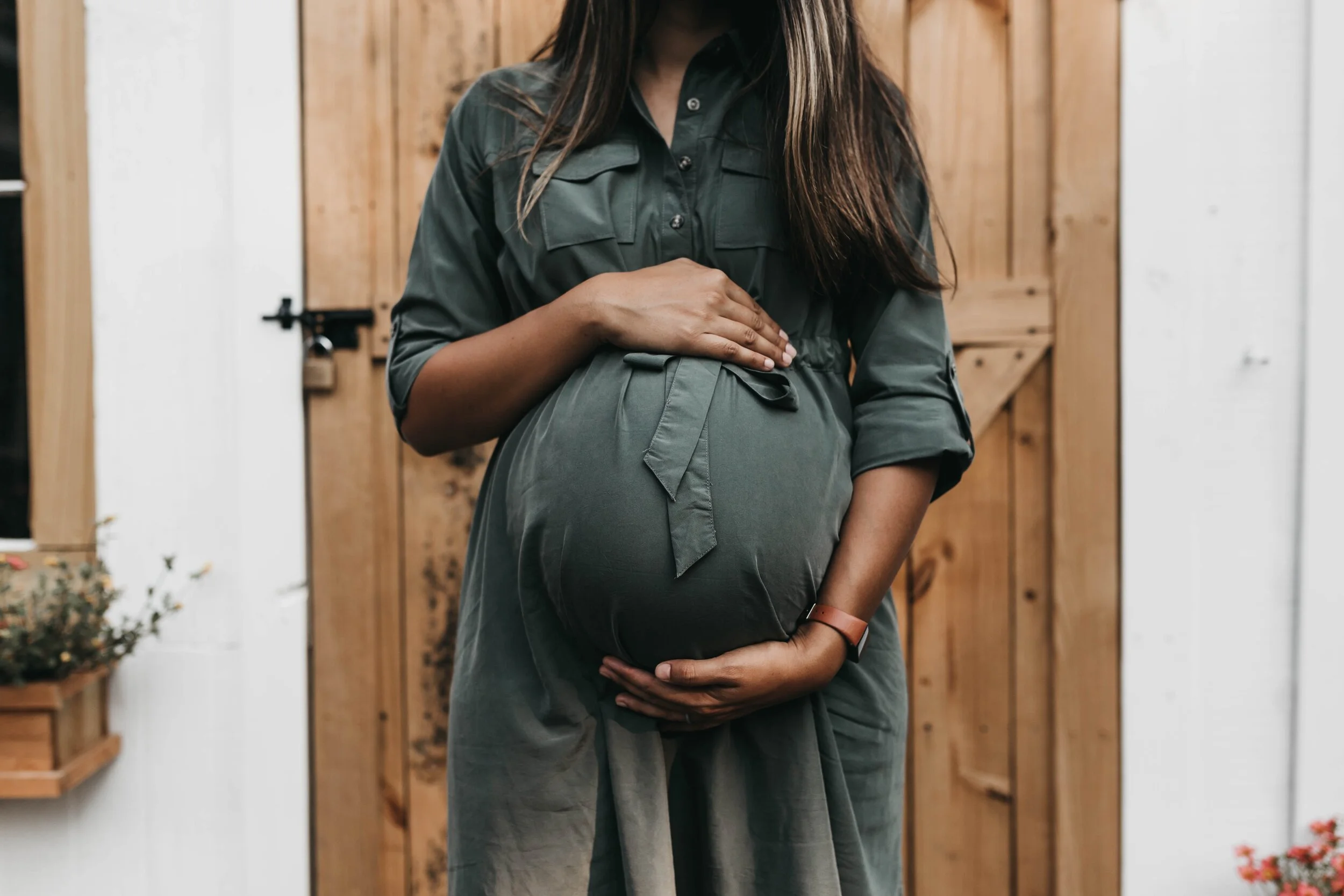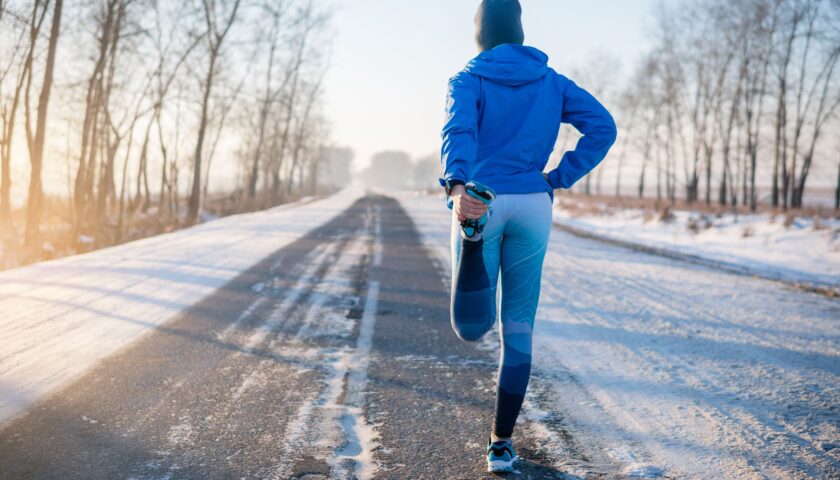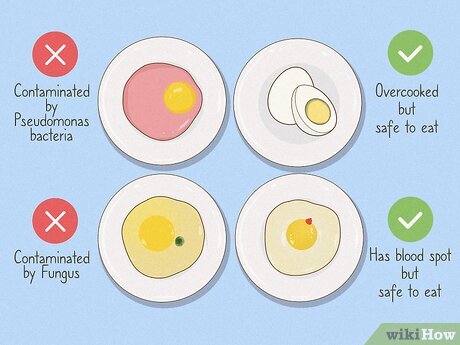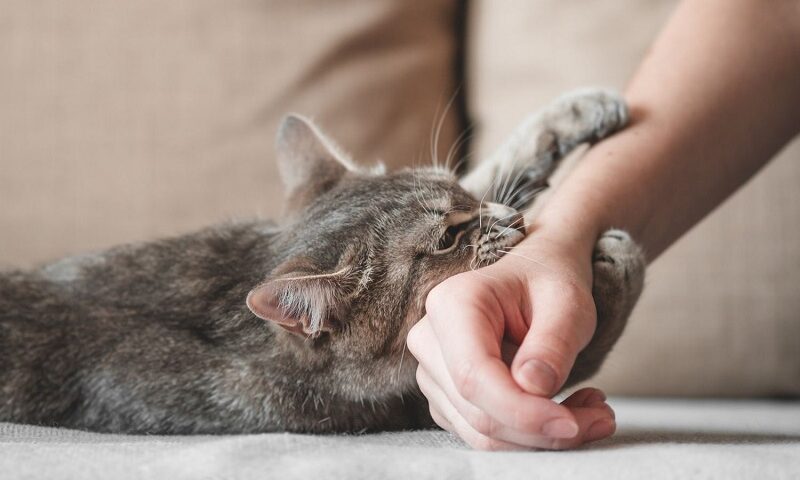The Unseen Weight of Motherhood in Kashmir
By: Saika J | 12 September 2025
Motherhood in Kashmir is not just a personal journey—it is a cultural event, wrapped in age-old traditions, family rituals, and deep affection. When a Kashmiri woman gives birth, she is not only celebrated as a mother but also embraced by customs that shape her recovery.
From Loaseh Aab (herbal baths) to being fed haund, kokur yakhni, saffron milk, and walnuts, every detail of her postpartum period is crafted with love. Yet, beneath the warmth of family care lies a silent burden: post-pregnancy swelling.
For many Kashmiri women, this swelling is not just temporary puffiness of the feet and hands. It often becomes stubborn fat, especially around the waistline, fueled by biology, overfeeding, lack of movement, and cultural expectations.
This article explores the issue from every angle—biological reality, cultural customs, emotional struggles, and practical solutions—to help Kashmiri women recover not just as mothers, but as whole individuals.
Biological Reality: When the Body Speaks
Swelling—or edema—after childbirth is a common medical phenomenon. Almost every Kashmiri mother will notice it in the days following delivery.
Why It Happens:
-
Hormonal Shifts: After childbirth, progesterone and estrogen levels change drastically, causing water retention.
-
IV Fluids & Medication: Medical interventions like drips, epidurals, or C-sections leave behind excess fluid.
-
Physical Strain: Labor and surgery trigger inflammation, slowing natural recovery.
-
Poor Nutrition & Inactivity: A diet too rich in proteins and fats, coupled with extended rest, worsens swelling and adds fat deposits.
👉 While most women recover within weeks, many Kashmiri mothers struggle with persistent waistline fat—not just from biology but from cultural postpartum practices.
The Maternal “Laa’d” (Love): Care Wrapped in Culture
In Kashmiri culture, a new mother is Loaseh (a postpartum patient). For forty days—or longer—she is treated with love, pampering, and ceremonial care.
Rituals of Love:
-
Loaseh Aab (Herbal Baths): Warm water infused with fenugreek, dill, or caraway seeds to soothe the body.
-
Rich Foods:
-
Haund (puffed rice porridge with milk) for gentle digestion.
-
Kokur yakhni (chicken cooked in yogurt) for protein.
-
Vopul haakh (wild greens) for iron and recovery.
-
Saffron milk & walnuts for warmth and vitality in Kashmir’s chilly climate.
-
-
Ceremonial Gifts & Care: Relatives bring clothes, blankets, and blessings.
This laa’d (love) is pure, affectionate, and rooted in cultural wisdom. But sometimes, it becomes overprotection:
-
Overfeeding, where the mother is urged to eat constantly.
-
Restricted mobility, where she is discouraged from moving or walking.
-
Emotional isolation, where silence replaces open conversation.
What begins as devotion can unintentionally trap the mother in cycles of swelling and weight gain.
Tradition vs. Transformation: The Silent Struggle
Kashmiri customs around childbirth are rich with meaning. Yet, they also carry unintended consequences.
-
Ritual Confinement (Chilleh): The forty-day rest strengthens healing—but also causes immobility.
-
Name-Giving & Ceremonial Roles: These rituals honor the child, but sometimes reduce the mother to her function as a caretaker.
-
Silence as Strength: Mothers are often expected to accept discomfort and not complain.
In these moments, a Kashmiri woman’s body becomes a canvas of duty, not dignity. The swelling in her feet, the heaviness of her waistline, and the quiet of her heart—all reflect a cultural script that celebrates sacrifice but forgets individuality.
Duty or Dignity?
Here lies the paradox:
-
She is celebrated as a life-giver, but overlooked as a person.
-
She is fed endlessly, but denied movement.
-
She is pampered, but silenced.
The swelling, then, is not just physical. It is cultural. It represents the weight of expectations, the heaviness of silence, and the burden of traditions that need evolution.
Steps to Overcome the Menace of Post-Pregnancy Swelling
The challenge, then, is not to abandon Kashmiri postpartum traditions—but to reshape them with balance and modern wisdom.
Food as Medicine, Not Excess
Food is sacred in Kashmiri postpartum care. But excessive protein, fat, and sweets often lead to stubborn weight gain.
Practical Adjustments
-
Balanced Plates: Mix traditional kokur and haund with lighter options like dal soups, seasonal fruits, and boiled haakh.
-
Portion Control with Affection: Show love with frequency of care, not endless serving sizes.
-
Hydration Rituals: Warm cumin or fennel water to reduce bloating.
-
Healthy Alternatives: Swap fried snacks with dried apricots, roasted makai, or walnuts.
👉 Tradition stays alive, but without trapping the mother in swelling.
Gentle Movement: The Forgotten Cure
The cultural emphasis on immobility worsens fat retention. Yet gentle movement is healing, not harmful.
Movements for Kashmiri Mothers
-
Postpartum Walks: Small walks indoors after a week (doctor’s advice).
-
Yoga & Stretching: Cat-Cow, pelvic tilts, and light stretches.
-
Pranayama (Breathing): To reduce stress and improve circulation.
-
Daily Baby Care as Activity: Lifting, rocking, and carrying the child provide natural movement.
👉 Rest does not have to mean stillness—it can mean active healing.
Emotional Healing: Breaking the Silence
Cultural affection can feel isolating when the mother’s emotional needs are ignored.
Emotional Nourishment
-
Encourage Dialogue: Let mothers voice anxieties freely.
-
Limit Isolation: Controlled social visits bring joy and support.
-
Ceremonies with Heart: Add space for mothers to share stories, not just sit silently.
-
Preserve Identity: Remind her she is more than “Loaseh”—she is a woman, a dreamer, and an individual.
👉 A mother’s swelling reduces faster when her mind is light and supported.
Tradition Evolving with Time
Kashmiri customs are precious heritage. But they can evolve.
-
Love ≠ Overfeeding: Express affection through presence, not just plates of food.
-
Rest ≠ Immobility: Protect her health with herbal baths, massage, and guided movement.
-
Respect ≠ Silence: Honor her body and her voice.
-
Care ≠ Erasure: Remember the woman behind the mother.
Quick Guide for Kashmiri Mothers
✅ Foods to Eat After Childbirth
-
Warm milk with saffron & walnuts – boosts energy and warmth.
-
Haund (puffed rice in milk) – light, easily digestible.
-
Kokur yakhni (chicken in yogurt) – protein-rich, aids recovery.
-
Vopul haakh (wild greens) – iron and minerals.
-
Herbal teas (saunf, cumin, methi) – reduce bloating & support digestion.
-
Seasonal fruits (apple, pear, apricot) – fiber and vitamins.
❌ Foods to Limit/Avoid
-
Fried & oily snacks (pakoras, nadru chips) – hard to digest, add fat.
-
Excess ghee & butter – useful in moderation, harmful in excess.
-
Too much red meat – causes heaviness and sluggish recovery.
-
Refined sugar desserts – increase swelling and stubborn fat.
Daily 15-Minute Postpartum Routine
Even during Chilleh (40-day rest), gentle activity can help reduce swelling and fat buildup.
-
Morning:
-
Drink warm fennel water.
-
5 minutes of deep breathing (pranayama).
-
-
Afternoon:
-
Light indoor walk (5–7 minutes).
-
Stretch arms, shoulders, and back gently.
-
-
Evening:
-
Gentle pelvic tilts or cat-cow yoga pose.
-
Herbal bath (Loaseh Aab) if prescribed.
-
👉 These small steps improve blood flow, reduce bloating, and prevent fat from “getting stuck” on the waistline.
Cultural Do’s & Don’ts for Families
💚 Do’s
-
Show love through presence and care, not just food.
-
Offer herbal baths and massages for healing.
-
Encourage her to share feelings openly.
-
Balance tradition with doctor’s advice.
🚫 Don’ts
-
Don’t force overfeeding as a sign of love.
-
Don’t restrict all movement—gentle walks are safe.
-
Don’t silence her struggles in the name of strength.
-
Don’t treat her only as “Loaseh”—remember she is also herself.
Bottom-Line: Healing with Health, Heritage & Harmony
Post-pregnancy swelling in Kashmiri women is not just a medical condition—it is a cultural story. It reflects how biology, rituals, and silence weave together in the delicate days after childbirth.
But true Laa’d (love) means more than feeding and protecting. It means giving her the freedom to heal, the strength to move, the dignity to express, and the recognition of her individuality.
If Kashmir can evolve its postpartum traditions—keeping their soul but reshaping their form—its mothers will not just survive motherhood. They will thrive in it.
Sample Postpartum Diet & Activity Chart (Kashmir-Centric)
| Time of Day | Diet | Activity | Care Ritual |
|---|---|---|---|
| Morning | Warm saffron milk + walnuts | 5 min pranayama | Light massage with mustard oil |
| Midday | Haund (puffed rice in milk) + boiled haakh | Gentle 5 min walk | Rest in warm room |
| Afternoon | Chicken yakhni + rice (small portion) | Light stretching | Herbal steam inhalation |
| Evening | Fruit bowl (apple/pear) + kahwa | Pelvic tilts | Loaseh Aab bath |
| Night | Lentil soup + roti | Baby rocking/movement | Warm blanket rest |
Disclaimer
This article is intended for educational and cultural awareness purposes only. It does not replace professional medical advice, diagnosis, or treatment. Every woman’s body and postpartum recovery journey is unique. Please consult a qualified healthcare provider, gynecologist, or nutritionist before making changes to your diet, physical activity, or postpartum care routine.
Cultural practices described here reflect traditional Kashmiri customs and may vary across families and regions. Readers are encouraged to adapt rituals mindfully, balancing heritage with modern medical guidance.




